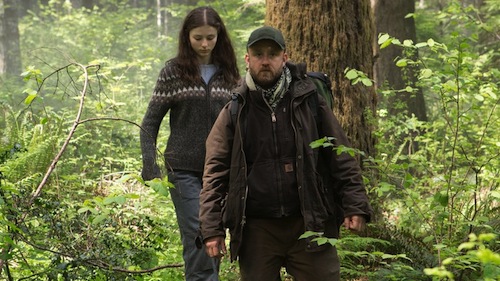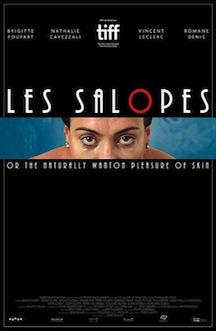Directed by Gareth Evans
Country: UK / USA
With the claustrophobic, medieval-esque, gory horror film “Apostle”, director Gareth Evans (“The Raid: Redemption”) attempts to offer us a bit more than just action sequences with insanely kinetic physical clashes. Indeed, the film tells a super dark story, set in 1905 and immersed in strong religious mysticism and fantasy.
Dan Stevens is Thomas Richardson, a traumatized former Christian missionary who travels to a remote Welsh island to rescue his innocent sister Jennifer (Elen Rhys) from the hands of a religious cult headed by the fervent prophet Malcolm Howe (Michael Sheen) and his power-hungry right-hand, Quinn (Mark Lewis Jones), a tyrant who deceptively looks for purity. These dark souls worship a mysterious, imprisoned goddess who feeds from the fresh blood of their ritualistic sacrifices.
Thomas is not willing to pay any ransom, concentrating all his efforts in finding Jennifer and set her free. When the rulers of the island realize there is an intruder, they contemptuously exhibit Jennifer publicly to attract his attention. Thomas is eventually entrapped and the success of the mission becomes dependent on Andrea (Lucy Boynton), the good-hearted daughter of Malcolm, who, in the meantime, loses ascendency for Quinn. Our hero is also guided by the young Jeremy (Bill Milner), son of another cult devotee, whose tragic fate is morbidly depicted in a disgusting scene that includes vile torture and men dressed in black KKK-style costumes.
The mise en scene, legitimately photographed by Matt Flannery, is representative of a disturbing combination of Kafkian fantasy, Bergman-like religious paranoia, and Chan-wook’s studies on brutality and torture, while also displaying sunless landscapes and dismal intramural scenarios.
The camera work is commanded with assuring preciseness, exhibiting a couple of glorious weirdly-angled shots that emphasize the bizarreness even more. As a violent, supernatural adventure, the film should attract both action and horror enthusiasts alike, yet Evans ends up slightly short of thrills and ambiguity, which are always valuable aspects of the genre. I’m convinced that this film would have benefited if told from a more psychological perspective instead of just relying on painful, physical horrors. “Apostle” has the proper mood but, regardless the different styles, couldn’t surpass the adrenaline infusion of The Raid installments, Evans’ true specialty.




























































